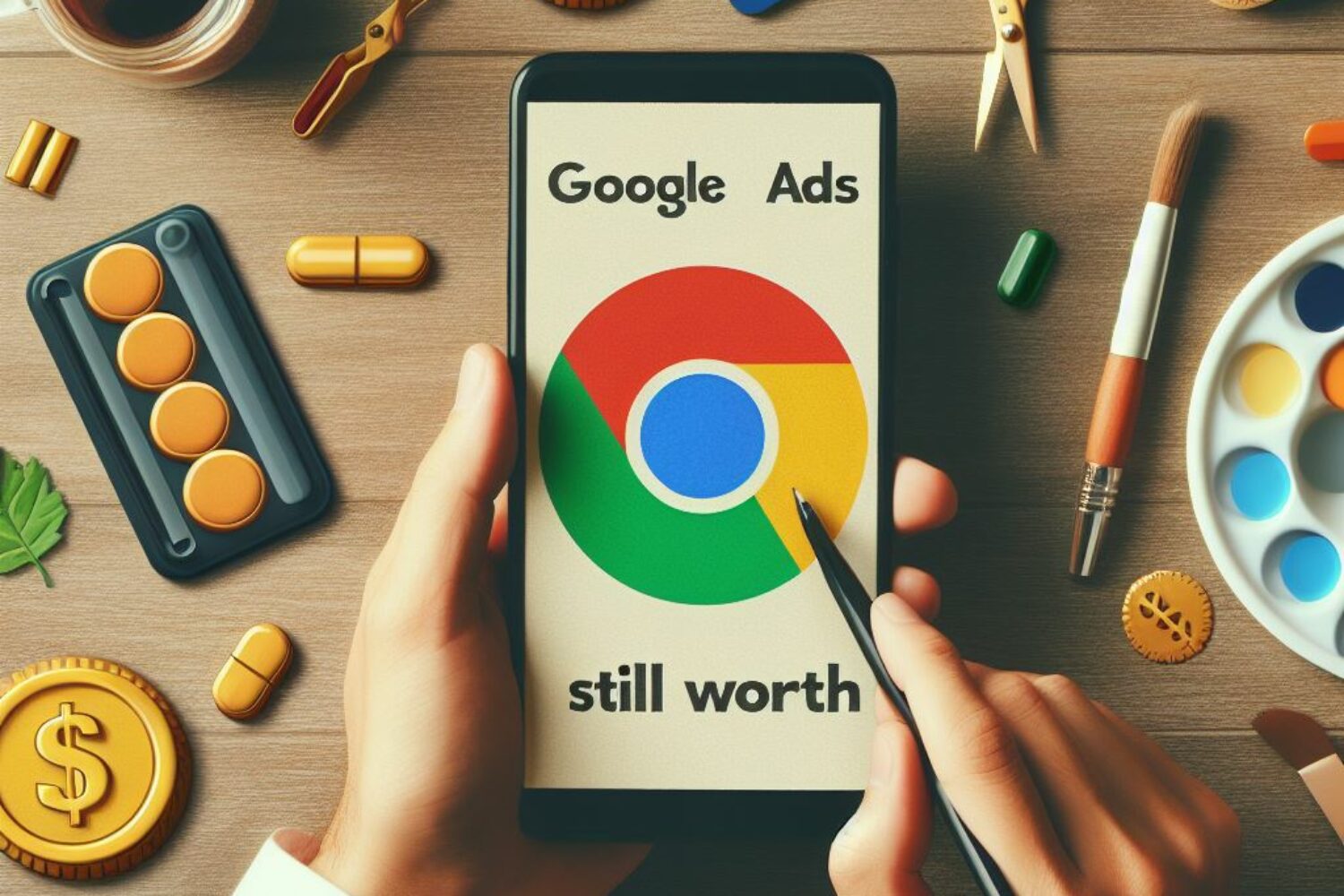In the ever-evolving digital marketing landscape, Google Ads remains a cornerstone of many advertising strategies. But as the market shifts and new platforms emerge, businesses and digital marketing agencies alike are asking: “Is Google Ads still worth it?”
What is Google Ads?
Google Ads is a powerful online advertising platform that allows businesses to display ads on Google’s search engine results pages and its advertising network. It’s a crucial tool for media buying and targeting specific demographics, interests, and behaviors.
How Do You Get Started with Google Ads?
Getting started with Google Ads, the online advertising platform by Google, can seem daunting at first, but it’s a straightforward process that involves several key steps. Here’s how you can launch your Google Ads campaign, whether you’re a small business owner, part of a digital marketing agency, or a solo entrepreneur looking to drive more traffic to your website:
1. Set Your Goals
Before diving into Google Ads, it’s crucial to define what you want to achieve with your advertising campaign. Do you want to increase website visits, generate more leads, boost sales, or improve brand awareness? Having clear goals will help guide your campaign structure and strategy.
2. Create a Google Ads Account
To start, visit the Google Ads website and sign up for an account. You’ll need a Google account to sign in. If you don’t have one, you can create it during the sign-up process. Follow the prompts to set up your account.
3. Choose Your Campaign Type
Google Ads offers several campaign types, including Search, Display, Video, Shopping, and App. Each type serves different advertising goals and placements. For most businesses, starting with a Search campaign is advisable as it targets users actively searching for products or services related to your business.
4. Set Your Budget
Decide how much you want to spend daily on your campaign. Google Ads uses a pay-per-click (PPC) model, so you’ll pay each time someone clicks on your ad. Setting a budget ensures you don’t spend more than you’re comfortable with, and Google Ads provides tools to manage your spending effectively.
5. Target Your Audience
Define who you want to see your ads by selecting specific locations, languages, and other demographic details. Google Ads allows you to be as broad or as specific as you like, enabling you to target your ideal customer base effectively.
6. Choose Your Keywords
Keywords are words or phrases that trigger your ads to appear in search results. Select keywords related to your products or services. Use Google’s Keyword Planner tool to research and find effective keywords that potential customers might use to find businesses like yours.
7. Create Your Ads
Craft compelling ads that will attract your target audience. An effective ad includes a clear headline, a description of what you’re offering, and a call-to-action (CTA) prompting the user to take a desired action, such as visiting your website or making a purchase. Make sure your ads are relevant to the keywords you’ve chosen.
8. Set Up Billing
Enter your billing information into your Google Ads account. You’ll need to provide payment details to activate your campaign. Google Ads will charge you based on the amount of clicks your ads receive, up to your specified daily budget.
9. Monitor and Optimize Your Campaigns
Once your campaign is live, it’s important to monitor its performance and make adjustments as needed. Use Google Ads’ analytics tools to track how your ads are doing in terms of clicks, impressions, and conversions. Experiment with different keywords, ad copy, and targeting options to improve your ROI.
10. Learn and Adjust
The digital marketing landscape is always changing, and what works today might not work tomorrow. Stay informed about Google Ads updates and best practices. Continuously test and learn from your campaigns to discover what strategies yield the best results for your business.
By following these steps, you can get started with Google Ads and begin reaching potential customers effectively. Remember, success with Google Ads doesn’t happen overnight. It requires patience, experimentation, and ongoing optimization to achieve the best results.
Google Remains the Preferred Search Engine of Choice
Google’s dominance in the search market ensures that ads placed through Google Ads reach a vast audience. This extensive reach is a key reason why many consider Google Ads still worth it.
Google Paid Advertising Reaches the Right People
With advanced targeting options, Google Ads ensures that your advertising efforts reach the people most likely to be interested in your products or services, making every dollar spent more effective.
Google Paid Ads Fit Into Any Budget
Google Ads operates on a pay-per-click model, meaning you only pay when someone clicks on your ad. This flexibility allows businesses of all sizes to leverage Google Ads effectively.
No Clicks, No Google Ads Payment
This pay-per-click model also means that if your ads don’t get clicks, you don’t pay, minimizing the risk of wasting your advertising budget on ineffective ads.
Added Precision with Your Ads
Google Ads offers unparalleled precision in targeting, allowing advertisers to reach potential customers based on specific search terms, demographic information, and even their behavior online.
How Do Google Ads Work?
Advertisers bid on keywords relevant to their business, and Google uses these bids, along with the ad’s quality score, to determine which ads to display for various search queries. This system ensures that users are presented with ads most relevant to their needs.
The Pros of Google Ads
Google Ads Help You Reach a Wider Audience
Google’s extensive network means your ads can be seen by a large portion of the internet-using population, increasing brand visibility and reach.
Google Ads Has Access to Detailed Analytics
The platform provides detailed analytics that allows businesses and digital marketing agencies to track the performance of their ads and adjust strategies accordingly.
Google Ads Offers Lots of Targeting Options
From keyword targeting to audience demographics, Google Ads provides numerous options to ensure your ads reach the right people.
Google Ads Maintains Control Over the Budget
You have complete control over how much you spend on your campaigns, allowing for effective budget management.
The Cons of Google Ads
Google Ads Can Be Time-Consuming
Optimizing and managing campaigns can be time-consuming, especially for those unfamiliar with the platform.
Google Ads Can Be Costly
Competitive keywords can be expensive, making it challenging for smaller businesses to compete.
Google Ads Is Not Just About Ads
Success on the platform requires a comprehensive approach, including website optimization and quality content.
Things to Keep in Mind in 2024
Expanded Search Ads Are Gone
Google’s shift away from expanded text ads requires advertisers to adapt to new formats and strategies.
No More Third-Party Cookies
The phase-out of third-party cookies will impact targeting and tracking, necessitating new approaches to audience engagement.
A Shift to Performance Max
Google’s emphasis on the Performance Max campaign type encourages advertisers to leverage AI and machine learning for optimization.
Is Google Ads Still Worth It?
Considering the platform’s ability to target specific audiences, offer immediate results, and provide detailed performance analytics, the answer for many businesses and digital marketing agencies is a resounding yes. Google Ads continues to be a valuable tool for reaching potential customers, especially when integrated into a comprehensive digital marketing strategy.
Google Ads vs Facebook Ads: What’s the Difference?
While both platforms offer effective targeting and analytics, Google Ads primarily focuses on users actively searching for specific products or services, whereas Facebook Ads target users based on interests and demographics, making each platform valuable for different aspects of digital marketing.
What’s the Downside of Google Ads?
The main challenges include the potential for high costs, the time investment required for campaign management, and the complexity of optimizing campaigns for the best results.
Let’s Recap: How to Set Yourself Up for Success with Google Ads
Consideration #1: What do you want Google to do for you?
Define your objectives clearly, whether it’s increasing brand awareness, driving traffic, or generating sales.
Consideration #2: What is your profitability scenario?
Understand whether your Google Ads investment is directly profitable, indirectly profitable, break-even, or likely unprofitable, and plan accordingly.
Consideration #3: What are your startup costs?
Consider the costs associated with DIY management, hiring an external agency, or employing someone internally to manage your campaigns.
Is Google Ads Worth It for Small Business?
Why Use PPC Ads for Small Business?
PPC ads offer small businesses the opportunity to reach potential customers precisely when they’re searching for related products or services, making it an efficient and effective marketing tool.
How Much Should a Small Business Spend on Google Ads?
Budgets can vary widely, but starting small and gradually increasing based on performance is a prudent approach.
Things to Consider Before Using PPC Ads for Small Business
Understand your target audience, set clear goals, and continuously monitor and adjust your campaigns for the best results.
read more about: Why is Online Advertising Effective
Wrap Up: Thorough Marketing Campaigns Are Your Best Bet
While Google Ads presents certain challenges, its benefits—especially in terms of targeting capabilities and speed to market—make it an invaluable component of a well-rounded digital marketing strategy. By considering your objectives, budget, and the changing digital landscape, you can leverage Google Ads to achieve significant returns on your investment.
Summary
“Is Google Ads still worth it?” Yes, for businesses and digital marketing agencies aiming to maximize their online presence and reach targeted audiences efficiently, Google Ads remains a powerful tool. With strategic planning and continuous optimization, Google Ads can drive meaningful results and support your overall marketing objectives.
FAQ
- Is Google Ads suitable for all businesses? Yes, businesses of various sizes and industries can benefit from Google Ads, provided they have a clear strategy and understand their target audience.
- How do I know if my Google Ads campaign is successful? Measure your campaign’s success by setting clear KPIs, such as click-through rates, conversion rates, and ROI, and adjust your strategy based on these metrics.
- Can Google Ads work with a limited budget? Yes, Google Ads can be effective even with a limited budget by focusing on highly targeted campaigns and continuously optimizing for performance.

